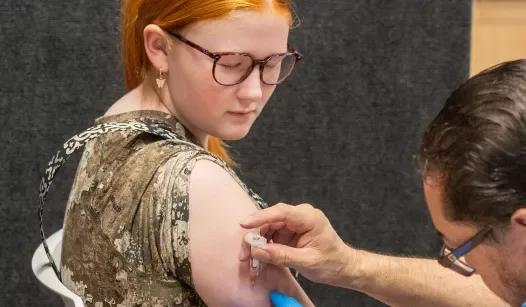The Covid-19 pandemic has reshaped many aspects of our lives, including public health policies and perceptions about vaccines. As we navigate the aftermath of this global crisis, it is crucial not to lose sight of the importance of vaccinations that have long been established as vital for public health, such as the MMR (measles, mumps, and rubella) vaccine.
In recent years, there has been a concerning trend of vaccine hesitancy that has been exacerbated by misinformation and fear surrounding the Covid-19 vaccines. This hesitancy can lead to a dangerous resurgence of vaccine-preventable diseases, including measles. Measles, once considered eliminated in the United States, could make a comeback if vaccination rates decline.
The MMR vaccine has been a cornerstone of public health for decades, effectively reducing the incidence of these diseases. Measles is not just a mild childhood illness; it can lead to severe complications, including pneumonia, encephalitis, and even death. The mumps virus can cause serious complications, such as meningitis and orchitis, while rubella poses significant risks during pregnancy, potentially leading to congenital rubella syndrome in newborns.
Vaccination against these diseases is not just a personal choice but a collective responsibility. High vaccination rates are essential to achieve herd immunity, which protects those who cannot be vaccinated due to medical reasons, such as allergies or weakened immune systems. When vaccination rates drop, the entire community becomes vulnerable, and outbreaks can occur.
The legacy of the Covid-19 pandemic should not deter us from promoting the MMR vaccine. Instead, it should serve as a reminder of the importance of vaccines in protecting public health. The misinformation surrounding Covid-19 vaccines has spilled over into discussions about other vaccines, leading to increased skepticism. It is essential for public health officials, healthcare providers, and communities to counteract this misinformation with accurate, evidence-based information.
Public health campaigns must emphasize the safety and efficacy of the MMR vaccine. Extensive research has shown that the benefits of vaccination far outweigh the risks. Adverse reactions are rare and typically mild compared to the potential consequences of contracting these diseases.
Furthermore, as we confront the challenges of vaccine hesitancy, it is vital to engage with communities and address their concerns. Listening to the fears and questions of parents and caregivers can build trust and encourage informed decision-making about vaccinations. Education plays a critical role in dispelling myths and promoting the importance of vaccines for children and adults alike.
In conclusion, the MMR vaccine is a vital tool in safeguarding public health. As we move forward from the Covid-19 pandemic, it is crucial to continue advocating for vaccinations and ensuring that misinformation does not lead to the resurgence of preventable diseases. By prioritizing the MMR vaccine, we can protect our communities and uphold the progress made in public health. Let us not abandon the lessons learned but instead reinforce our commitment to vaccination as a means of ensuring a healthier future for all.
